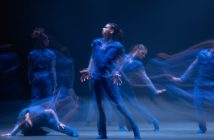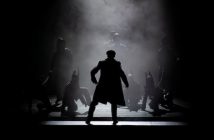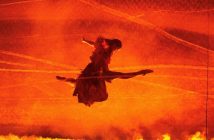The Sleeping Beauty has a lot working in its favour: the choreography is created by the undisputed master of the Ballet Blanc era, Marius Petipa, and later given a facelift by the remarkable Frederick Ashton. Tchaikovsky’s score is tailored perfectly to Petipa’s every need, yet still swelling with musical integrity and emotional sagacity. And in this production, The Royal Ballet wisely returns to the design used in their 1946 production of The Sleeping Beauty – the first post-war production for the company, poignantly playing on themes of good triumphing over evil. Oliver Messel’s original costume designs are recreated to great effect, bringing a pop of sunny colour and joie de vivre to the stage
The story of The Sleeping Beauty is one we are all familiar with, thanks to the cartoonish meddling of Walt Disney. It has all the components of a perfectly juvenile fairy tale: a beautiful yet doomed Princess, a love-struck handsome Prince, a gloriously gothic evil nemesis and more fairies than you can shake your Disney Store wand at. At a bum-numbing three hours long (mercifully including intervals – especially merciful if, like my theatre buddy, you have the bladder capacity of a walnut), it is imperative that the pacing of the ballet is swift enough to keep the audience engaged. The first and second acts manage admirably, entertaining us with evil Queens shrouded in dry ice, dashing suitors, and the beautifully virtuous Lilac Fairy. However, once Aurora is woken from her sleep in act three, the ensuing wedding celebrations are rather more trying, as the narrative dwindles off into a string of gratuitous, twee pas de deux.
The dancers executed the production with flair, although the virtuosity in a production from this era can often pale in comparison to what we have become used to. In a day and age where we are au fait with ballerinas balancing on pointe on a man’s head (the Guandong Acrobatic Troupe’s production of Swan Lake – if you haven’t YouTube’d it yet, where have you been?!), the relative limitations of traditional ballet vocabulary can fail to impress. Lauren Cuthbertson’s Aurora was sparklingly sprightly, and her effortlessly precise whips into floor-scraping fish dives provoked gasps of wonder from the audience. Clare Calvert’s Lilac Fairy was a triumph too; understated yet radiant, never upstaging Aurora but maintaining an arresting presence, not to mention showing off some of the most elegantly swayed back legs on the Royal Opera House’s stage. The principals were supported by a strong ensemble and some standout performances from soloists; Hiraku Kobayashi and Alexander Campbell stole the show in act three with a stunning partnership and flawless technique in Princess Florine and the Bluebird’s pas de deux.
The Sleeping Beauty is the perfect production for children, not least because it’s a story they are familiar with, thus eliminating the need to translate the mystifying world of balletic mime. The glittering costumes, happy ever afters and ever-magical struggles between good and evil are perfect entertainment for younger members of the audience. I can’t think of a better production to introduce children to the world of classical ballet, and the Royal Opera House setting adds a glamorous sheen to proceedings. The Sleeping Beauty isn’t a groundbreaking production by any stretch of the imagination, but the strength of Tchaikovsky’s stunning score and Petipa’s genre-defining choreography both ensure it remains an irresistible morsel of nostalgia.
The Royal Ballet’s Sleeping Beauty runs until 21st December at the Royal Opera House. For more information and tickets, visit the website.




